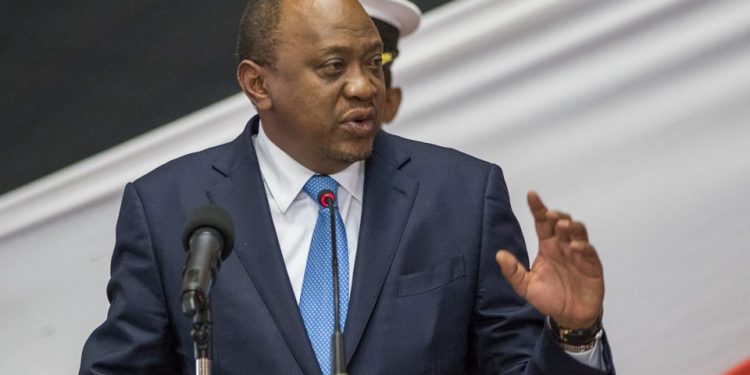Parliament on Thursday passed President Kenyatta’s proposal to reduce the VAT on petroleum products from 16 per cent to 8 per cent amid protests from some Members of Parliament who were opposed to the proposal and against how the vote was carried out.
The Controversial Vote
The memorandum on the Finance Bill 2018 required 233 majority votes for it to be rejected. There were only 215 members present during the vote.
According to the National Assembly’s Speaker Justin Muturi, the quorum allowed for the vote was not met. “The ‘No’ vote on [8% VAT on Fuel] was lost on the basis that they did not have the required number,” he said.
The Standard reported that the Majority Leader Aden Duale and John Mbadi orchestrated a walkout from the House that gave the President’s memorandum a win based on a lack of quorum.
Besides the fuel tax passing through, employees will now have 1.5 per cent of their gross income deducted for contributing to the National Housing Development Fund. In addition, Kenyans will now be charged a 20 per cent excise duty for money transfers.
Financing High Debt Levels and a Budget Deficit
In his national address last week, President Uhuru defended his memorandum stating that to maintain the progress on development, tough choices had to be made.
Supporting the memorandum, Duale said the VAT on petroleum products will enable the government to finance its main projects while delivering to Kenyans basic services. He also added that other countries such as South Africa, Ghana, and Nigeria charge VAT on petroleum products at 14 per cent, 15 per cent, and 5 per cent respectively.
The Finance Bill 2018 when signed will, therefore, reduce the country’s debt levels, address the budget deficits, and finance the government’s Big Four Plan.
Supplementary Budget Cuts
The Budget and Appropriations Committee (BAC) has reduced the total budget of this financial year by Sh37.6 billion and a reduction of the total recurrent expenditure by Sh9 million.
The budget for exploration and distribution of oil and gas has been slashed to Sh1.5 billion while the State Department of Infrastructure’s budget has been cut to Sh8.7 billion. Other budget cuts will affect country governments, the Treasury, the Ministry of Devolution, the National Assembly, and the Public Service Commission (PSC) among other entities.
On the other hand, the Judiciary received an increase of Sh1.5 billion in its budget which will see the arm of government proceed with plans to construct courts and speed up the hearing of corruption cases.
“The PSC proposal to reduce the parliamentary budget by a figure of Sh5 billion could have seen the entire budget affected by up to 40 per cent and that is why we have rationalised this, so that the austerity measures cutting across government is between 15 and 20 per cent,” the Chairman of the Committee Kimani Ichung’wa said.
The Budget Committee was reviewing the PSC budget which proposed a reduction of Sh55.1 billion to the budget.




